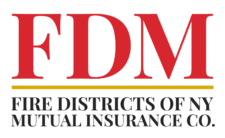Firefighters face a multitude of occupational hazards, ranging from the immediate dangers of flames and structural collapse to the insidious long-term consequences of toxic exposure. Among these long-term threats, cancer has emerged as a particularly significant concern. FDM is here to examine the unique cancer risks firefighters face and discuss evidence-based preventative measures to protect their health.
Elevated Cancer Risk in Firefighters
Studies have consistently demonstrated that firefighters experience a higher incidence of specific cancers compared to the general population. This elevated risk is primarily attributed to the complex mixture of carcinogenic substances encountered during fire suppression activities. Exposure can occur through inhalation, dermal absorption, and ingestion.
Specific Cancer Risks
- Respiratory Cancers: Inhalation of smoke and toxic fumes significantly increases the risk of lung cancer, mesothelioma, and other respiratory malignancies.
- Skin Cancer: Dermal contact with carcinogenic substances poses a substantial risk of skin cancer.
- Digestive Cancers: Ingestion of toxins, whether directly or not, can contribute to the development of cancers affecting the digestive system.
- Other Cancers: Research has also linked firefighting to an increased risk of certain other cancers, including leukemia and lymphoma.
Cancer Prevention Strategies for Firefighters
While the inherent risks of firefighting cannot be entirely eliminated, firefighters can take proactive steps to minimize their cancer risk:
- Consistent and Correct Use of Protective Gear: Full protective gear, including a self-contained breathing apparatus (SCBA), must be worn at all times during fire suppression activities to mitigate exposure to smoke and toxins.
- Post-Fire Decontamination: Rigorous decontamination of gear and equipment after each fire is essential to remove residual carcinogens. Firefighters should shower and change clothes as soon as feasible following an incident.
- Proactive Health Monitoring and Early Detection: Regular medical checkups and cancer screenings tailored to the specific risks faced by firefighters are crucial for early detection and intervention.
- Adoption of a Healthy Lifestyle: Maintaining a healthy lifestyle, including a balanced diet and regular physical activity, can strengthen the body’s defenses and potentially reduce cancer risk.
- Ongoing Education and Awareness: Staying informed about cancer risks, prevention strategies, and the latest research is essential.
For firefighters who are already battling cancer, the Firefighter Cancer Support Network helps firefighters, EMS professionals, and their families by providing occupational-cancer awareness, prevention training, and support for those dealing with cancer nationwide.
Cancer represents a significant and ongoing threat to the health and well-being of firefighters, but by understanding the associated risks and diligently implementing preventative measures, firefighters can substantially reduce their risk and protect their long-term health.
